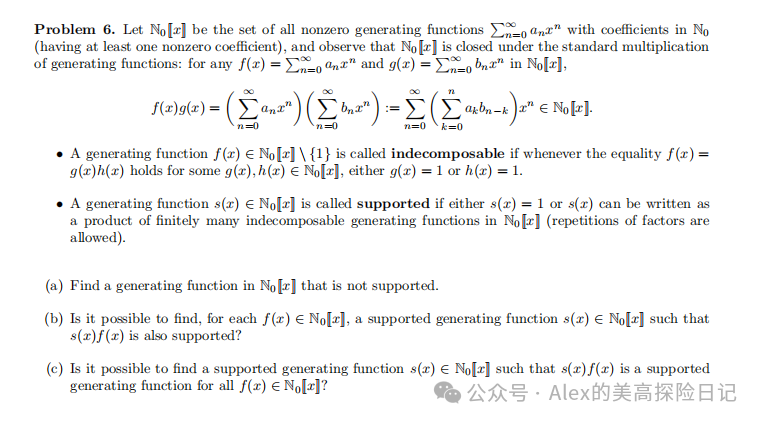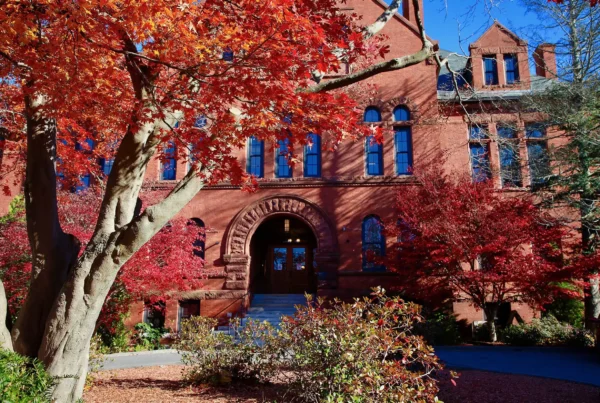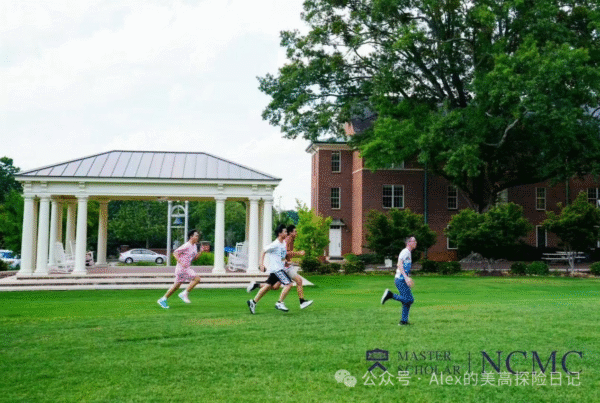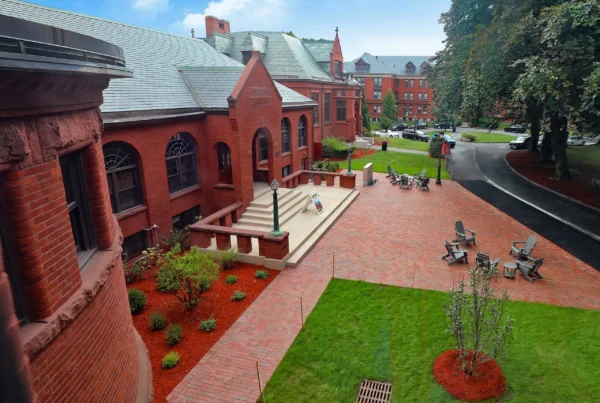”9th Grade: Dreaming Big, Trying Hard, but the First Attempt Ended in Defeat
As a student aiming for top schools like HYPSM, I proactively sought advice and information. I met MOPpers (U.S. National Math Team members), OHSers (Stanford Online School, home school), and IMO medalists . And it turns out many of them had participated in MIT PRIMES.
They all strongly recommended me to apply based on the following reasons:
- I had broad math knowledge, some college-level exposure, and had attended several research-oriented camps, giving me a foundation in research skills.
- I live in the Boston area, which is a natural geographical advantage.
- I had a competition background which makes me a fast thinker and problem solver.
So what is PRIMES?
PRIMES is a prestigious high school research program launched by MIT in 2013, aimed at guiding students through original research and helping them publish papers or enter competitions.
According to official stats:
- ~45% of PRIMES graduates are admitted to MIT
- ~21% go to Harvard
- ~80% end up at one of HYPSM
Admission Status of Previous PRIMES Students (Partial):

My First Failure:
Once I learned about PRIMES in 9th grade, I started preparing, not with an “all-or-nothing” mindset, but with alternative plans in place. (Which were proved to be helpful later.)
Study Burnout:
I tried to learn from past PRIMES problems. But at first, I couldn’t understand a single thing. The frustration was overwhelming.
Solved Nothing:
The first-round PRIMES selection requires solving math problems. As a 9th grader, I couldn’t confidently solve even one of them fully and correctly, despite attempting a few. Predictably, I was eliminated.
Contingency Plans:
I also applied to Duke NCMC and iHub’s math research program and both turned out to be crucial for me.
At Duke NCMC, my math ability improve. However, since I wasn’t able to adjust my feelings quickly, I didn’t interact deeply with the professor. While others asked questions after class, I was off playing basketball. So when it came time for recommendation letters, the professor didn’t know me well.
At iHub, I learned my lesson and managed to talk to a MIT professor after every single class, asking for guidance and assistance.
Here are some tips in presenting yourself:
- Asked thoughtful questions about class materials
- Introduced your background and goalsand ask for advice
- Showed the professor yourprevious work for feedback, as well as proactively letting him know you better.
- Take myself as an example, I asked him to guide my iHub research projectwhich resulted in a paper andfinal presentation. By integrating his suggestions, I modified a lot of content and finally successfully published.
- Chatting! We exchanged our understanding of Chinese culture. For example, he has been to Nanjing, the ancient capital of six dynasties. Coincidentally, I grew up in Nanjing, so there was a lot common topics for us to talk about.
- Interaction! We discussed real-world application of math. Though he’s the professor of financial math, as soon as I understand some knowledge in class, I’ll share my thoughts about applying those knowledge into biomedicine or quantitative finance with him.
The purpose of presenting myself:
After we know each other well, I asked him to recommend me to apply to and participate in PRIMES, thus, obtained his recommendation letter naturally.
There was a small episode: Professor’s time was usually really limited. In order to make sure I can met and communicate with the professor among so many students that lined up to ask questions, I decided to give up my lunch time when necessary. The professor every day is a rush, (morning classes, afternoon classes, and at noon may even catch the plane. I once squat him after the second class and intended to continue the communication, but the result is that he had to run again with two female teaching assistants that have been escorting the professor to participate in the next stage.) Running out of solutions, I desperately came up with the strategy of coming across him in the restroom, blocking him, and quickly following my self introduction with extremely fluency. The opportunity to fight for their own out! As long as you’re dare to think and have the courage to do, you’ll get something in return.
”10th Grade: Prepare the ground and file it well
Prepare the ground and file it well:
Thanks to the contingency plans I’ve made in Grade 9, especially the carefully selected and thoughtfully pursued research-based course taught by MIT professor. (Unlike many others, I approached research with multiple stages and goals in mind, progressing step by step from easy to difficult. This approach allowed me to truly gain value from research, as basic-level projects often yield limited results.)
These backup plans directly helped me gain hands-on research experience, publish a paper, and, most crucially, secure a recommendation letter from an MIT professor (which is incredibly important!!!). I’m deeply grateful to the teachers who offered me guidance and helped me refine my plans throughout the process, including the various dimensions I considered in this year’s summer programs’ applications. (I’ll be sharing more about the programs I applied to in future updates.)
Application Materials and Process:
- Standardized Scores: Luckily, my first SAT was 1500+. I also hadPSAT.
- Recommendation Letters (as mentioned above, 2–3, the recommendor must have math background because only math programs opened application this year)
I also chose my school’s linear algebra teacher as another recommendor. In class, I performed exceptionally well — I was the only 9th grader taking linear algebra, while the next youngest student was in 11th grade (the rest were all upperclassmen). I was the most active participant in class, consistently submitted high-quality homework, and scored nearly perfect marks on every exam. I ultimately earned a 99 GPA (A+, well above a 4.0 scale). Naturally, the teacher wrote me a strong recommendation letter. (By the way, he’s also the advisor of the school’s Financial Investment Club, which he founded.) Teacher’s recognition and support were absolutely crucial.
- Personal Essays (2 answers needed based on the question)
- Previous honors related to math
- Previous extracurricular activities, especially research experience
- Problem set (CRUCIAL!)
- Interview (CRUCIAL!)
”Sharing Some Experiences
About the topics and difficulty:
First-round screening: 6 problems — failure here meaning no chance, not even Jesus can help you.
Difficulty (5-star scale):
- Problem 1: A calculus and inequality proof (★5)
- Problem 2: A competition levelcounting problem, including grid coverage, double-counting, and boundary symmetry analysis (★3)
- Problem 3: Probability and expected value computation, dynamic programming, recurrence relations — deriving using linearity of expectation and recursion (3.5★)
- Problem 4: Involves Galois theory, finite fields, and number theory — studying field extensions and Galois groups, properties of splitting fields and isomorphisms in finite fields, along with applications of the Euler totient function and Frobenius maps. The proof is extremely complex and tedious.(5+★)
- Problem 5: Group theory,modular groups, and free products. The core challenge is literature review: the problem involves the special group PSL(2), and once the right paper is found, it becomes explainable. Still, it’s very difficult. (5★)
- Problem 6: I’m not quite sure what the answer is. Possibly an open problem from a paperwith no known solution. I couldn’t figure out the solution or even the right approach, so I’ll leave this one as a mystery for the reader to think about. (5++++★)

To be honest, the problem-solving phase lasted six weeks. The first two weeks went smoothly and I quickly solved the first two problems. But once I reached problems 3 and 4, I started getting stuck. The difficulty level skyrocketed exponentially.
My brain felt completely fried.
Still, I pushed through, and it wasn’t until 10th grade that I began to see real progress — from my summer research, to my first SAT attempt, to the Yale competition, to MAML and the Harvard-MIT math competition (more on that in the next post).
After going through so much, I’ve realized that ability tends to grow quietly in the background. It’s through facing challenges and tackling problems head-on that people grow the fastest.
All the self-doubt and setbacks that were frustrating actually make me progress, though often in ways I didn’t expect. Whether my math skills, mental resilience, or communication abilities had more or less been improved unconsciously.
Truthfully, I was very nervous about applying to PRIMES this year. I genuinely didn’t think I’d get in. I approached it more as a chance to gain experience and build a stronger foundation for the future, but I still took every step seriously and gave it my all.
About the Interview:
Confidence is Key!
A lot of things happened in the 15-minute interview. The interview came 2 weeks after submitting the problems set, in late December. It was 1-on-1 with no warning.
I entered the Zoom waiting room 20 minutes early, expecting to wait for another candidate’s interview. But instead, my interview started right away, catching me off guard.
The professor (Indian) had a strong accent (probably because I was too nervous), which made things harder. I was flustered.
The key: Confidence!!
Though it was only 15 minutes, it was highly intense. Not a single second was wasted. The first question was about my targeted research topic, the second was on Galois theory, then they gave me a brainstorm-style geometry problem, and finally a polynomial algebra problem, which I had to brute-force on the spot.
During the whole process, whenever I understood a question, I jumped straight to the reasoning. I’d say things like “Well, this just works because of [name of theorem],” though admittedly my explanations weren’t always very complete (my mom still says that to me a lot).
But I believe what helped me most was confidence. I did make some small mistakes, for example, I misheard one of the questions and gave the wrong answer, but I quickly corrected myself: “Wait, that obviously can’t be right, it’s actually the complete opposite. So the correct answer is…”
Then, on January 10, 2025, at 2:00 p.m., I was sitting in my Multi class (our math course) when I opened my email and saw an unread message. Honestly, I had a strong feeling that I’d been accepted (not sure why). Obviously, you wouldn’t be reading this post right now, if I hadn’t been accepted. So I guess it’s a happy ending for everyone!
”Offer: My Excited Heart is About to Spill Over the Screen
Opening the email:
“Welcome to PRIMES 2025, congratulations!”
The moment those words appeared on the screen, I was overwhelmed with emotion. I couldn’t help but shout out loud: “Yes! I got in! I got in!” And not just accepted, I was placed on the research track of the PRIMES program!
My teacher and classmates were genuinely happy for me. Everyone applaud and congratulated me.
The atmosphere was amazing (after all, we were in math class, and PRIMES is one of the top math research programs for high school students). Everyone was truly excited! The applause and cheering went on for quite a while, and the class even paused for a moment to celebrate this unexpected announcement. There were smiles all around and people were literally bouncing with joy.
Even though I had anticipated the offer, I was still thrilled beyond words.
This admission is without a doubt one of the most important milestones in my high school academic journey.
That night, I took my friends out for Chinese food to celebrate. Around 3 a.m., I sent the news to my family and teachers via WeChat. I also emailed every teacher who had ever supported me academically to share the great news and thank them.
Everyone was truly happy for me.
Now, I’m full of anticipation for what lies ahead. Starting from January 22, I’ll be heading to MIT every week for research!
”Hello! MIT
Two days later, the excitement started to wear off. I started to think I might celebrated a little too soon.
Once I began organizing my schedule: PRIMES research work, extra credit courses, AP exams in May, I realized that PRIMES also offers the opportunity to apply early to MIT in 11th grade…
The pressure suddenly hit me all at once.
Anyway, I’ll keep you all updated on my latest progress in the future.
Author’s Note (please be kind):
Life is a journey full of unknowns. You should never doubt the meaning of each step along the way.
Everyone needs a dream, or otherwise there is no difference between you and a salted fish?
But dreaming alone isn’t enough. Opportunities are everywhere, the question is whether you’re willing to reach out and seize them. Whether it was me actively connecting with national team members and PRIMES alumni, or taking the initiative to talk with professors, build relationships, and showcase both my abilities and personality, I never would’ve imagined I’d actually apply for PRIMES, let alone get a strong recommendation letter.
In short, having the courage to dream is important, but having the courage to act matters even more. And this doesn’t just apply to summer programs.
The same is true of life. Just go for it!




